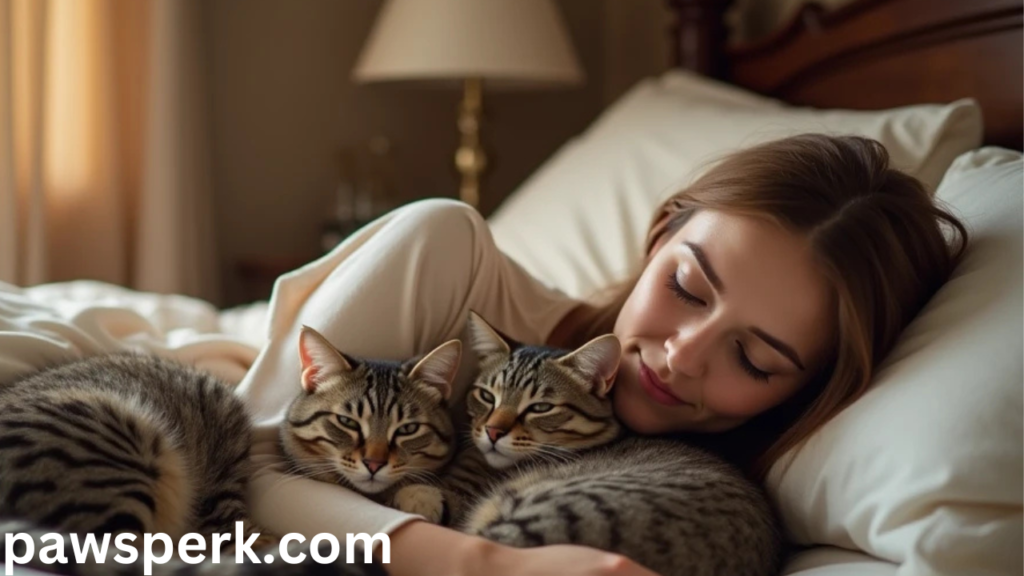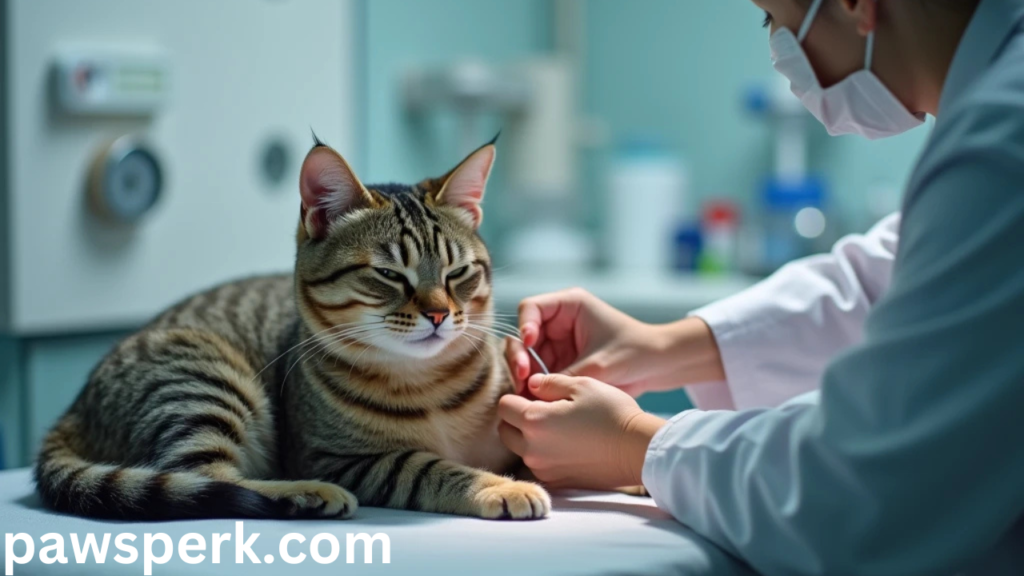Heavy breathing in cats can be alarming, turning their usual mysterious charm into a cause for concern. While felines communicate through tail flicks, graceful leaps, and basking in sunbeams, labored breathing, also known as dyspnea, should never be ignored. In some cases, it may be harmless, but in others, it could signal serious health issues. This article explores the causes of heavy breathing in cats, when to seek veterinary care, and ways to support your pet’s health.
Understanding What Constitutes Normal and Abnormal Breathing
Let’s first define what is typical. When at repose, a healthy cat breathes 20 to 30 times per minute and moves their chest quietly and effortlessly. You might notice slightly faster breathing after playtime or during a stressful event (like a car ride). This is akin to humans catching their breath after a job’s temporary and resolves quickly.
Abnormal heavy breathing, however, is persistent or accompanied by other symptoms. Think:
- Open-mouth breathing: Unlike dogs, cats hardly ever pant.
- Noisy breathing, such as gurgling, rasping, or wheezing.
- Nostril flares or exaggerated chest motions.
- Sluggishness, appetite loss, or blue-tinged gums.
- It’s time to take action if your cat displays these symptoms.
Typical Reasons for Cats to Breathe Too Much
1. Stress or Overexertion
Cats, similar to people, can occasionally get fatigued. They might breathe heavily for a short period after intense play or when faced with something they perceive as threatening, like a neighbor’s dog. For example, it’s normal for your cat to experience some breathing difficulty for a minute or two after chasing a toy up the stairs. However, if they are lying down and having trouble breathing, it’s not solely due to anxiety.
2. Heatstroke
In comparison to humans, cats are not as efficient at regulating their body temperature. If it’s hot outside, rapid breathing may indicate that a cat is getting too warm. Breeds with flat faces, such as Persians, are especially vulnerable to this issue. If your cat is panting in a warm environment, relocate them to a cooler area, provide water, and consult a veterinarian if the signs persist.

3. Respiratory System Infections
Cats frequently get upper respiratory infections (URIs), particularly in homes or shelters with other pets. These illnesses, which are occasionally brought on by viruses like feline herpes, can cause respiratory issues, congestion, and sneezing. To make up for nasal blockage, a cat with a URI may breathe through their lips or make a “stuffy” noise.
You may also like: Curly-Haired Cat Breeds: Allergy-Friendly or Myth?
4. Heart Conditions
Hypertrophic cardiomyopathy (HCM) is among the most prevalent heart conditions in cats, leading to heavy breathing. This difficulty in breathing is often caused by pulmonary edema, which is the accumulation of fluid in the lungs. Regrettably, heart disease often goes undetected until symptoms aggravate. Any cat can be affected, but breeds such as Ragdolls and Maine Coons have a genetic predisposition.
5. Asthma
Just like asthma in humans, feline asthma is an allergic respiratory condition. Signs of an asthma episode include rapid, shallow breaths, coughing, and wheezing. Common triggers consist of dust, pollen, and tobacco smoke. A typical symptom is a crouched stance with the neck extended, which helps the cat inhale more air.
6. Foreign Objects or Trauma
An inquisitive feline may inhale a tiny object (such as a blade of grass) or sustain chest injuries from a tumble. Breathing difficulties can result from either situation because they might block airways or harm the lungs.
When to Call the Vet
Heavy breathing is a red flag if:
- It lasts longer than a few minutes without an obvious trigger (e.g., exercise).
- Your cat seems distressed, hides, or avoids movement.
- You notice cyanosis (blue gums or tongue), which indicates oxygen deprivation.
Pro Tip: Record a video of your cat’s breathing before your vet visit. This helps the vet assess severity and patterns.
Steps in Diagnosis and Therapy
Your veterinarian will begin by performing a physical examination and listening to your heart and lungs. Some examples of diagnostic instruments are:
- X-rays or ultrasounds to check for heart disease, tumors, or fluid.
- Blood tests to detect infections or organ issues.
- Tracheal wash or bronchoscopy for suspected asthma or blockages.
Treatment varies by cause:
- Infections: Either antivirals or antibiotics.
- Asthma: Cats can use inhalers! or corticosteroid.
- Heart disease: Lifelong medicine or diuretics to minimize fluid intake.
- Heatstroke: oxygen treatment and intravenous fluids.
Advice for Cat Owners on How to Avoid Breathing Problems
1. Keep Cool: Make sure your house has adequate ventilation, particularly during the heat. Provide spaces with shade and fresh water.
2. Reduce Stress: Use pheromone diffusers (like Feliway) during changes (moving, new pets).
3. Monitor Weight: Obesity strains the heart and lungs. Stick to portion-controlled meals.
4. Avoid Smoke/Aerosols: These irritate sensitive feline airways.
5. Routine Checkups: Annual vet visits catch early signs of heart or lung disease.
The Emotional Side: Staying Calm for Your Cat
Cats pick up on our anxiety. Remain composed if your pet is having trouble breathing. Avoid abrupt movements, talk quietly, and carry them in a safe career. You can stop their worry from getting worse by remaining calm.
Concluding remarks
Cats with heavy breathing are not diagnosed; it is a symptom. Although panicking is simple, being informed enables you to take sensible action. You are the one who knows your cat best, so follow trends, note symptoms, and have faith in your gut. You are more than just a pet owner when you are aware of the reasons and prioritize preventive care for your kitty friend.Whenever feasible, it errs on the side of caution. A quick veterinarian checkup could make the difference between a small issue and a potentially fatal circumstance. We should treat our kitties with the same respect since they give us their whole selves.


